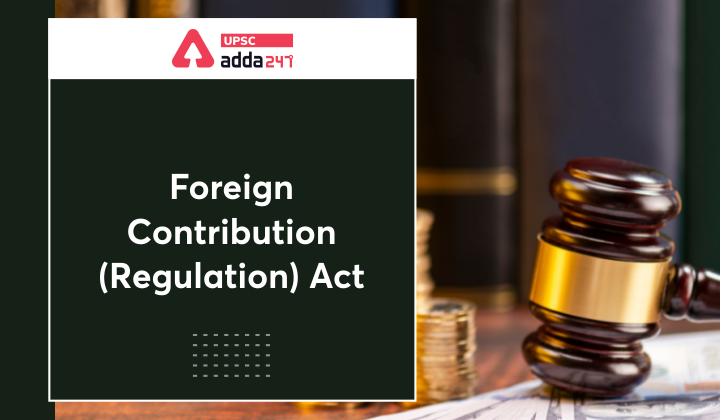Table of Contents
Foreign Contribution (Regulation) Act- Relevance for UPSC Exam
- GS Paper 2: Development processes and the development industry– the role of NGOs, SHGs, various groups and associations, donors, charities, institutional and other stakeholders.
Foreign Contribution (Regulation) Act- Context
- Recently, the Ministry of Home Affairs (MHA) has extended the deadline for NGOs to apply for renewal of their Foreign Contribution (Regulation) Act (FCRA) registration certificates.
- The certificates of around 80% of NGOs are expected to expire on October 31 and as per norms, they have to apply at least six months before the expiry of registration.
Failing on Food- Status of Malnutrition in Children and PM POSHAN Scheme
Foreign Contribution (Regulation) Act- Key Points
- Mandatory Provisions: The FCRA registration is mandatory for associations and NGOs to receive foreign funds. These mandatory provisions were introduced in 2020 through an amendment to the FCR Act 2010.
- The NGOs have to compulsorily open an account with the SBI in Delhi to receive foreign contributions.
- The FCRA registration is renewed every five years.
- There are 22,762 FCRA registered NGOs in India.
- Benefits: Registered NGOs can receive the foreign contribution for five purposes- social, educational, religious, economic and cultural.
Cities are Taking Climate Action
Foreign Contribution (Regulation) Amendment Act 2020- Key Features
- Public Servants: bars public servants from receiving foreign contributions.
- Mandatory registration using Aadhar: Aadhaar number is to be used mandatorily as an identification document for all office bearers, directors, or key functionaries of a person receiving foreign contributions.
- Transferability of foreign contribution: It bars the transfer of foreign contribution to any other person not registered to accept foreign contributions.
- Use of foreign contribution: The Act provides that only up to 20% of the total foreign funds received could be used for administrative expenses.
- This limit was 50% in FCRA 2010.
- FCRA bank account: Recipients of the foreign contributions are to mandatorily open a dedicated FCRA bank account with the SBI in Delhi to receive foreign contributions.




 TSPSC Group 1 Question Paper 2024, Downl...
TSPSC Group 1 Question Paper 2024, Downl...
 TSPSC Group 1 Answer key 2024 Out, Downl...
TSPSC Group 1 Answer key 2024 Out, Downl...
 UPSC Prelims 2024 Question Paper, Downlo...
UPSC Prelims 2024 Question Paper, Downlo...





